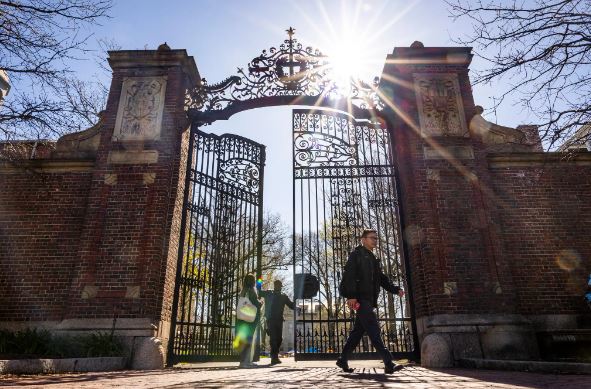Harvard University announced on Tuesday that it would significantly reduce its official statements on current events, aligning with recommendations from a faculty committee. This shift means Harvard will refrain from issuing statements of empathy on global issues, such as the Russian invasion of Ukraine or the October 7 Hamas attacks in Israel.
The decision follows the report from the Institutional Voice Working Group, an eight-member faculty committee. The report suggested that official empathy statements could create the perception that the university prioritizes some events over others, potentially alienating parts of the community. It also warned that expressing solidarity in such statements could implicitly alienate some members of the university.
The committee’s report stops short of endorsing full “institutional neutrality,” a stance championed by the University of Chicago, which avoids taking positions on political and social matters. After the October 7 Hamas attack, universities like Stanford and Northwestern adopted this policy. However, Feldman highlighted a key difference in Harvard’s approach: the university must promote its core educational mission and defend against threats to its academic values.
Feldman cited examples of when Harvard should engage in political matters, such as opposing a proposal by former President Donald Trump to heavily tax large private university endowments, and advocating for affirmative action in court, as these issues are directly related to the university’s core functions.
Tom Ginsburg, faculty director of the Forum for Free Inquiry and Expression at the University of Chicago, pointed out that Feldman’s examples do not conflict with Chicago’s stance on neutrality.
Harvard has faced criticism over its handling of statements on contentious issues, most notably after the October 7 Hamas attack. The university was criticized for its slow response to a pro-Palestinian letter from a student coalition blaming Israel for the violence. Former Harvard president Lawrence H. Summers argued that the delay allowed the student statement to be perceived as the university’s official stance. Following subsequent statements by Harvard President Claudine Gay condemning the Hamas attacks, the administration was accused of yielding to influential alumni and donors. This controversy contributed to Gay’s resignation.
Feldman acknowledged that the transition to fewer official statements would be challenging and would require a cultural shift within the university.
As Harvard moves forward with this new policy, the university aims to focus on its core mission and values while avoiding the pitfalls of appearing to take sides on complex global issues.

